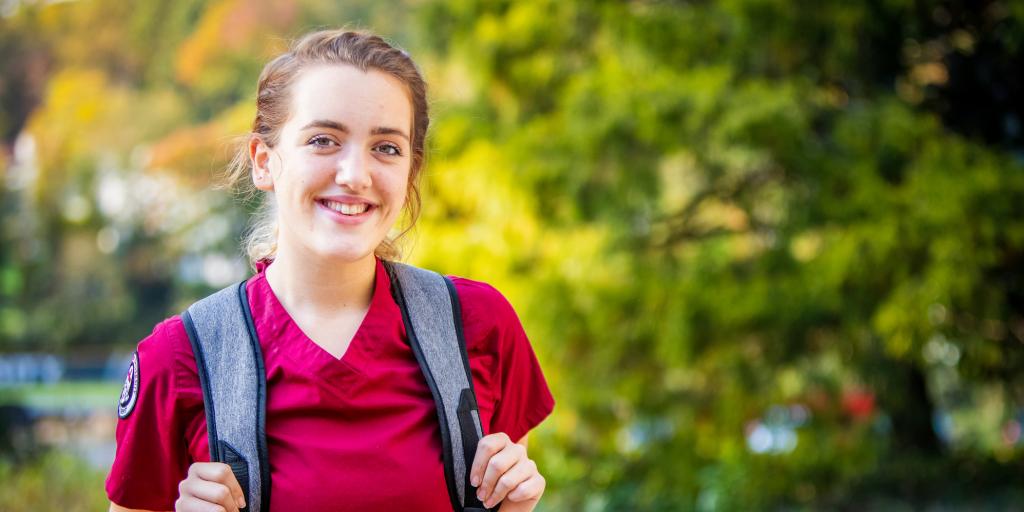

School of Nursing Vision Statement
Eastern University’s School of Nursing empowers graduates to excel and flourish as nurse clinicians, leaders, educators, and catalysts of change within healthcare and education.
Mission Statement
The School of Nursing's faith-infused programs prepare thoughtful and skilled professionals as health care providers and advocates, demonstrating collaborative engagement and servant leadership to secure mutually held goals in the communities they serve.
School of Nursing Statements of Belief
The Art and Science of Professional Nursing
Ephesians 4:32 - “Be kind to one another, tenderhearted, forgiving one another, as God in Christ forgave you.” (ESV)
Nursing is an art and a science. As an art, nurses serve human needs with compassionate care and respect for the dignity of life. As a science, nurses use evidenced-based practice and theory to promote health and respond to the human condition of persons, families, and populations.
Through the art and science of nursing, nurses are able to care for the biopsychosocial and spiritual needs of persons through a Christian worldview.
The Learning Experience
Proverbs 2:6 “For the Lord gives wisdom, from his mouth comes knowledge and understanding.” (ESV)
Learning is a highly personal experience that promotes self-direction and a commitment to lifelong professional growth and development. The learner brings an identity formed from rich, unique life experiences that provides a foundational context for learning. The diversity of these experiences shape the learners’ education as well as the nurse educator-learner interaction, thus promoting the motivation and curiosity to learn through shared responsibility in active learning processes.
The Human Experience
Psalm 139:13-114 “For you formed my inward parts; you knitted me together in my mother’s womb. I praise you, for a I am fearfully and wonderfully made. Wonderful are your works; my soul knows it well. (ESV)
Individuals are holistic beings with diverse experiences, perspectives, and values. Spirituality is at the core of the human being and influences all aspects of life, promoting a sense of wholeness to meet one’s biopsychosocial and spiritual needs. As a dynamic being, an individual is interconnected with persons, families, and populations as well as the environment.
Health
Jeremiah 30:17 - “For I will restore health to you and your wounds I will heal...” (ESV)
A person in balance is a healthy person. Health, which includes physical, mental, social, and spiritual wellbeing, is defined on a continuum and based on each person’s health perspective. Therefore, health is not merely the absence of disease or illness.
Environment
Colossians 3:12 - “Put on then, as God's chosen ones, holy and beloved, compassionate hearts, kindness, humility, meekness, and patience.”
A healthy environment is a universal need and fundamental human right and is sustained through multidisciplinary collaboration. Environmental and social justice is a right of all populations and assumes that disparities in health are not acceptable. The nurse promotes a healthy environment through respect of the diverse values, beliefs, cultures, and circumstances of patients and their families (ANA, 2007.) Rev: 7/21
Reference:
American Nurses Association (2007). ANA’s Principles of Environmental Health for Nursing Practice with Implementation Strategies (pdf).


